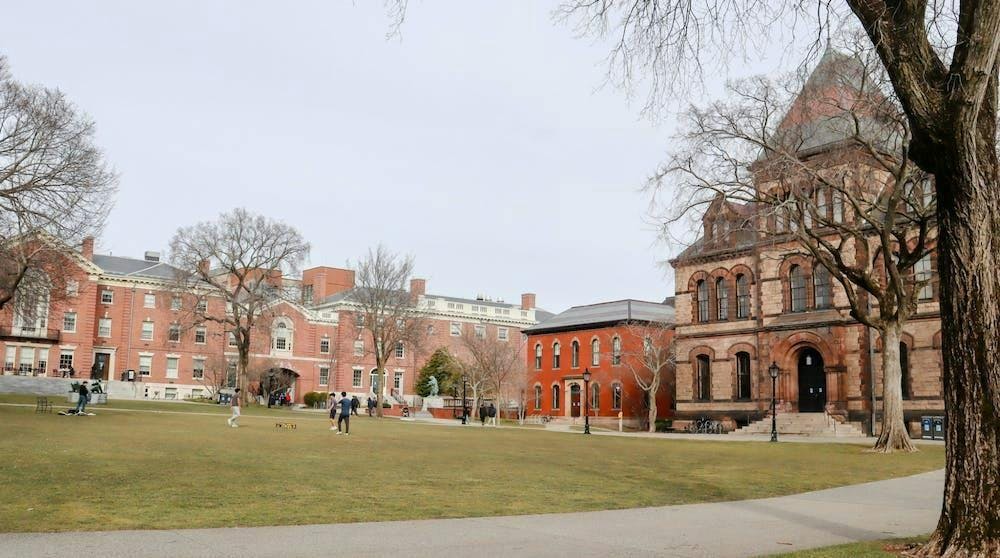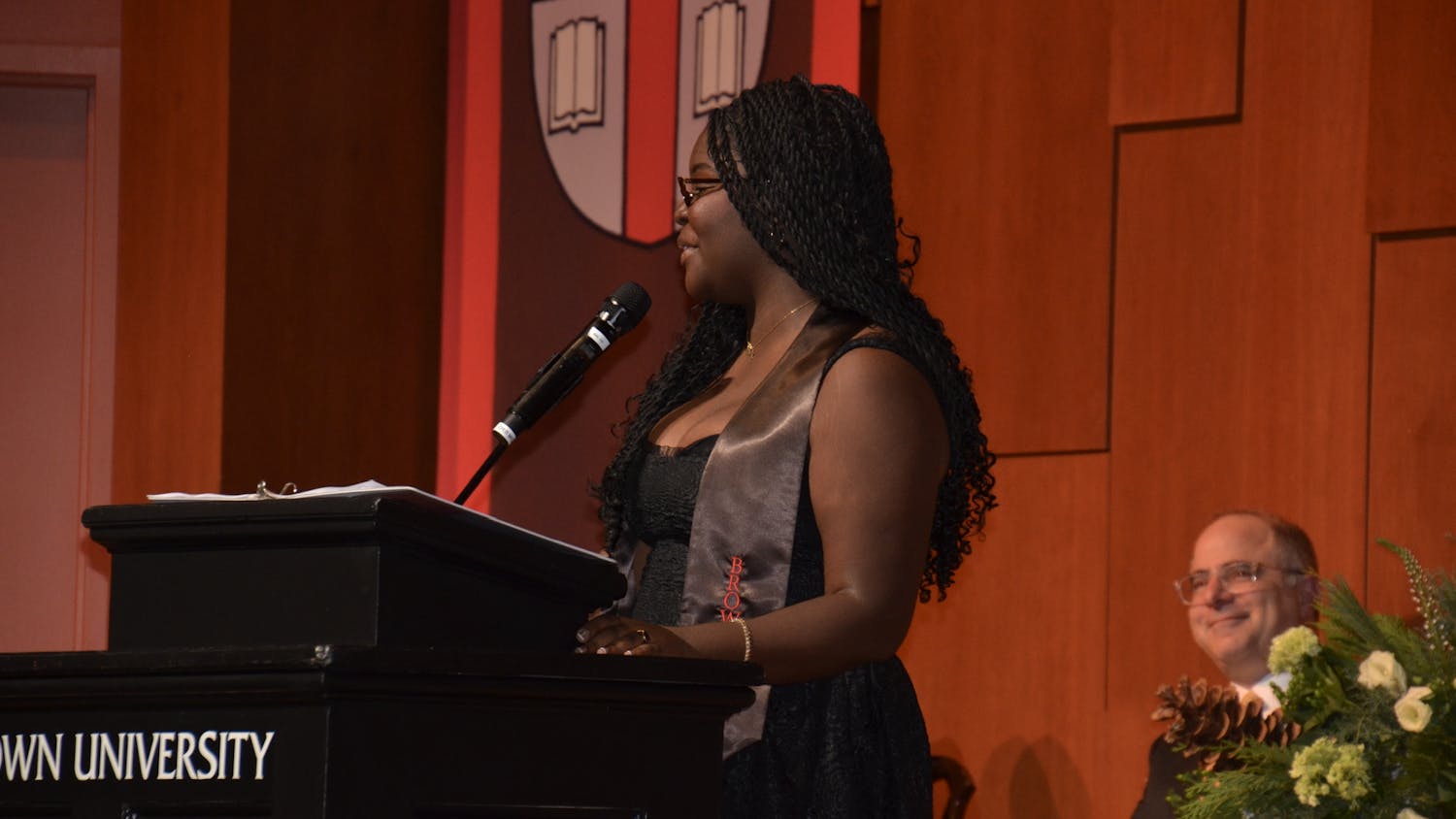For the past five months, the University’s Ad Hoc Committee on Admissions Policies has been considering changes to several of Brown’s admission policies, including test-optional, legacy and early decision practices. The committee was charged with providing recommendations to President Christina Paxson P’19 P’MD’20 and the Corporation — the University’s highest governing body — by the end of winter break.
The committee has not yet released any of its recommendations to the public. In a Jan. 24 letter to the Brown community, Paxson said the University would announce updates to the committee’s work “in the coming weeks.” On Wednesday, John Friedman, a committee member and the chair of the economics department, declined to answer questions regarding the committee’s schedule but said the public can expect an update “soon.”
The committee’s co-chair and Provost Francis Doyle told The Herald that the committee is “continuing to meet to develop and formalize its recommendations.”
Some students have reached out to the committee to provide their perspective, including Nick Lee ’26, the co-president of Students for Educational Equity, who emailed the committee on behalf of SEE. In these communications, Doyle and Friedman both indicated that the committee plans to seek public input as part of their deliberations.
Doyle wrote that the committee was “considering how to collect feedback,” and mentioned the possibility of using a survey to do so. In an email to The Herald, Doyle wrote that the committee “is interested in student perspectives and has made that a point of discussion during its deliberations.”
Despite this interest, the committee has not yet solicited public input. When asked this week when they planned to gather student input, Doyle did not address the question, only referring back to his previous response that the committee is “interested” in such input.
Lee reached out to the committee with SEE’s own recommendations, providing a proposal compiled by the student group that advocated for “ending preferred legacy admissions, permanently instituting a standardized testing optional policy and considering a Restrictive Early Action policy.” The proposal also included results from a student opinion survey that SEE conducted.
Doyle confirmed that the committee has considered “insights gleaned from student surveys that have been conducted independent of the committee’s work,” saying that doing so “recognizes the community-based efforts to understand student interests in these issues.”
He previously told The Herald that students were not originally named to the committee because their work “may involve highly confidential and sometimes very highly specific data about our students. We did not want to place our students in a conflicted situation.”
The University has not committed to releasing the committee’s recommendations publicly when they are provided to Paxson and the Corporation. Instead, University Spokesperson Brian Clark wrote in an email to The Herald that the University will share “a decision in advance of the next admissions cycle.”
Friedman has established himself as a leading voice in admissions at Ivy Plus institutions. In two related studies, he has analyzed the role that test scores and legacy status — two topics that the committee is considering — play in admission decisions at elite institutions of higher education.
The most recent study, published in January, concluded that “standardized test scores may have more value for admissions processes than previously understood,” The Herald previously reported. The committee looked at this research as part of its deliberations, Friedman said.
A separate study conducted last summer, which Friedman co-authored, found that wealthy applicants had a significant advantage in the admission process at Ivy Plus institutions, including Brown. These higher admission rates, the researchers say, are driven by legacy admits, higher ratings in non-academic admission criteria and athletic recruitment.
In recent months, numerous colleges and universities have significantly altered their admission policies. Wesleyan University, Virginia Tech and the University of Minnesota have recently ended legacy preferences, and Virginia Tech also eliminated early decision admissions. After a hiatus caused by the COVID-19 pandemic, MIT once again began requiring standardized test scores in fall 2022. Multiple other highly selective institutions are currently reviewing their policies.
The Corporation, which has final say over admission policies, changed the University’s early application cycle from an early action policy to the more restrictive early decision in February 2001.
Next week, the Corporation will begin several days of meetings that will determine various aspects of University policy.
When asked if the Corporation was planning to consider changes to admission policies, Cliatt wrote that “Corporation agendas are not public,” adding that “recommendations have not been submitted to the president, and therefore no recommendations have been submitted to the Corporation.”

Owen Dahlkamp is the managing editor of newsroom on The Herald's 135th Editorial Board, overseeing the paper's news operations. Hailing from San Diego, CA, he is concentrating in Political Science and Cognitive Neuroscience with an interest in data analytics. In his free time, you can find him making spreadsheets at Coffee Exchange.





